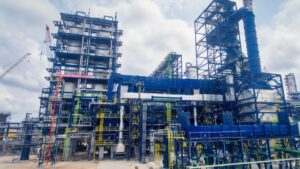
LNG rates will not affect increment in oil supply — Prince Salman
The Saudi Energy Ministry, Prince Abdulaziz Bin Salman has said even if OPEC+ were to boost oil supply to the market, as major consuming nations have called for, it wouldn’t have much difference on the global natural gas market.
Earlier the United States signaled that the Biden Administration hadn’t given up on calling on the OPEC+ alliance to increase supply to the market to bring crude and gasoline prices down.
“We are continuing to press, through member countries — member countries of OPEC, even as we are not a member — to address the supply issue and work to address it here as well,” White House Press Secretary Jen Psaki said during a briefing on Monday.
The U.S. Administration will “continue to use every lever at our disposal,” the press secretary added.
Despite the pressure from the Biden Administration and calls from major importer India, OPEC+ has been sticking to its initial plans to add 400,000 barrels per day (bpd) to its collective oil supply every month, despite the fact that various analyst estimates point to gas-to-oil switch lifting global oil demand in case of a colder winter.
Speaking at the CERAWeek India Energy Forum on Wednesday, the Saudi energy minister said, as carried by Bloomberg:
“We see our role as extremely limited,” referring to the possibility that OPEC+ come to the rescue of the energy crunch with more crude.
“The issue is not the availability of crude oil. Even if we made it available in tons and tons, who’s going to burn it? Who is in need of it? And are they in need of crude or in need, for example, of gas?” Prince Abdulaziz bin Salman, said.
Earlier this month, Saudi Aramco’s chief executive Amin Nasser said that the natural gas crunch had raised global oil demand by 500,000 bpd.
Last week, the International Energy Agency (IEA) said in its monthly report that the energy crisis had spurred a switch to oil products from natural gas. This, the IEA says, could raise global oil demand by 500,000 bpd compared with “normal conditions,” or a market in which energy and power prices are not setting record highs



